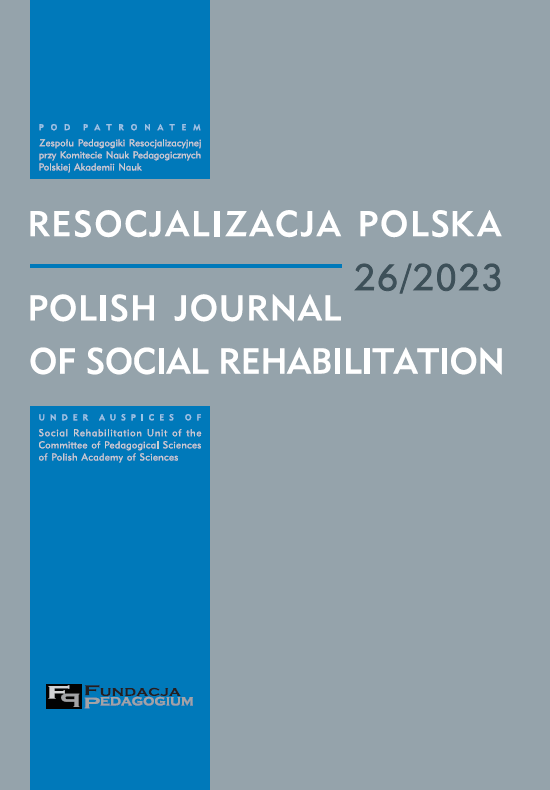Zmiana modelu ojcostwa W stronę równoważenia ról rodzicielskich i budowania równowagi pomiędzy życiem zawodowym a rodzinnym
Changing the fatherhood model. Towards balancing parental roles and building work-life balance
Author(s): Łukasz P. Ratajczak, Agnieszka KozłowskaSubject(s): Gender Studies, Family and social welfare, Sociology of Culture
Published by: Fundacja Pedagogium
Keywords: family model; fatherhood; change of the fatherhood model; work-life balance;
Summary/Abstract: The subject of theoretical considerations and empirical analysis is a change in the one key roles played by men in family life – the role of the father. A crucial element of this change is the detraditionalization of the family and fatherhood model, connected with the emancipation of women and men from their traditional social roles and moving away from the patriarchate. It brings positive effects: increases the chances of both parents for work-life balance, and improves the professional situation of mothers. Moreover, brings benefits also for the child, who in place of the father who is absent and strict, gains a sensitive partner and friend. The deliberations on the change of the fatherhood model are based on the literature review supplemented with a pilot study of pedagogy students on their preferences for the family and parenthood model. The online survey was used to gather the data. N = 69 participants, mostly women (89,9%), took part in the study. 71% chose the partnership family model as preferred; 25% – mixt one. Only one respondent indicated the traditional model as preferred, and no one chose the reversed traditional model. Over 90% of respondents expect equal engagement of fathers compared to mothers, and 10% perceive fathers as mothers’ “helpers”. Respondents also expect regular engagement of fathers in housework and other home duties (garden works). Almost half of the respondents (N = 28) perceive a mother’s career as a factor that positively influences child development. N = 12 respondents think this influence is negative in character, and N = 10 is indifferent. A similar proportion of answers are for the father’s work: 30 evaluated this fact as a positive, 11 as negative, and 10 as indifferent. Respondents chose a nursery as their preferred form of childcare. Most of this group, however, think that it would be a necessity and less because of the educational value of the nursery. In 25% of respondents’ opinion, the best form is home-based childcare. Most of the respondents (70%) would like to have two or three children; 12% – four or more. It shows that the demographic crisis doesn’t come from people’s preferences to have fewer children, but other barriers have been responsible for the low fertility rate.
Journal: Resocjalizacja Polska
- Issue Year: 26/2023
- Issue No: 1
- Page Range: 239-254
- Page Count: 16
- Language: Polish

